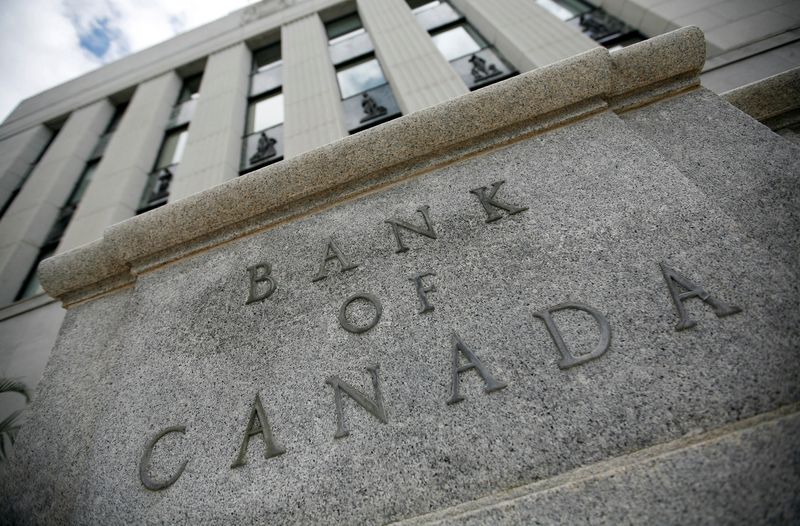Bank of Canada set to cut rates, update forecasts on inflation, GDP
2024.07.24 06:43
By Promit Mukherjee
OTTAWA (Reuters) – The Bank of Canada (BoC) is widely expected to trim its key overnight rate by 25 basis points on Wednesday amid slowing inflation, a weak job market and tepid economic growth, economists and analysts said.
This will be the second cut in as many months after the central bank became the first amongst G7 nations to reduce its policy rate last month when it lowered it to 4.75%.
The rate had been at a two-decade high of 5% for almost a year.
“It’s almost more about why wait, why not go forward with it (rate cut) at this stage,” said Dawn Desjardins, chief economist at Deloitte Canada, adding calls for a cut have been boosted by a softening economy.
A Reuters poll released on Friday showed nearly three-quarters of economists surveyed from July 16 to July 19 expected a cut in policy rate to 4.50% this week, and money markets see an almost 90% chance of a cut.
Inflation slowed more than expected to 2.7% in June – with BoC’s closely tracked core inflation measures also easing marginally. Although still hovering near the top of the BoC’s target range of 1%-3%, inflation has held below 3% this year.
The bank will announce its monetary policy decision at 9:45 a.m. ET (1345 GMT). It will also release its quarterly Monetary Policy Report, which will include fresh forecasts on 2024 economic growth and inflation.
Canada’s economic growth has been lackluster this year, and some fear that high interest rates and rising unemployment could trigger a recession, even as some concerns persist that rapid rate cuts could stoke renewed inflation.
“Weak economic growth is giving the Bank of Canada confidence that inflation is heading lower,” said Brooke Thackray, research analyst with Global X, a fund management company.

Thackray cautioned that a cut of more than 25 basis points however, could trigger inflation.
Home prices and mortgage costs remain elevated in Canada, and some economists fear faster cuts could spur a rush of demand in Canada’s rate-sensitive housing market, stoking inflation.








